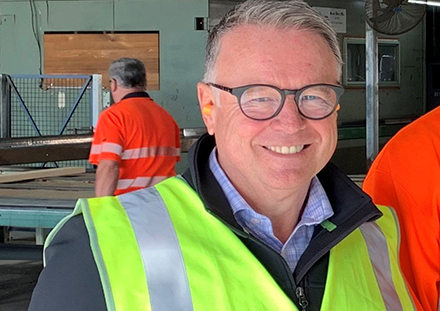The decision by the Government of Victoria to accelerate the cessation of selective and sustainable native forest harvesting is an unnecessary surrender to environmental activists.
It will result in even more hardwood being imported into Victoria from Tasmania and NSW. It will also add to current imports – already worth $5.5 billion – much of which comes from the tropical forests of developing nations with lesser environmental standards than Australia.
That’s no way to protect and conserve Australia’s native forest estate or to halt global deforestation practices. Sustainable forestry management practices play no role in deforestation in Australia and decision makers need to understand the ramifications of their decisions.
Australia has signed a global pledge to halt deforestation practices by 2030. Decisions by State Governments to cease sustainable forestry management in Australia are contrary to the objects of the pledge and will lead to more unsustainable and illegal logging in other countries. Regional Forest Agreements (RFAs) were created to ensure Australians can continue to access the hardwoods they need while protecting our native forest estate. Elements of RFAs include impacts on environment, social and economic factors. For 31 years that’s what they have taken into consideration and the forest sector is continually improving management practices to ensure the longer-term health of Australia’s native forests.
A quality, accessible and fire-resistant forest is a worked and managed one. That’s the other benefit our RFAs deliver, as climate impacts have increased on native forests management practices, research and development has focused on how to build resilient sustainably managed forests.
Access to native hardwood resources provides the private sector and Government Business Enterprises involved in the sustainable management of native forestry, with the incentive to manage our forest and there is a growing focus on better understanding the practices of how First Nations people managed the land for tens of thousands of years. That’s good for our economy, good for jobs, and good for the fauna that call our native forests home.
RFAs are an agreement between the Commonwealth and the States and AFPA acknowledges that the Federal Government is committed to upholding the RFAs. However, if the RFAs are falling short because of activist lawfare then the solution is to strengthen them rather than abandon them.
On that basis, this is now a problem for the Federal Government as we approach a hardwood supply crisis.
It’s time to elevate our growing import dependence and shrinking sovereign capability to the National Cabinet.
That’s the only way to establish a national plan in a timely way. Stopping native forestry in one state to import the product from another state is not a plan. With a decision of the Federal Court on a challenge to the RFAs in NSW pending, AFPA is calling upon the Federal Government to urgently engage with the States to secure the domestically produced hardwood supplies our economy needs.
Australia is already a net importer of forestry product. Just as Australian investors are coming to realise the greater role forestry can play in addressing climate exchange and how much more we can do with carbon-storing-wood in the built environment, some state governments seem intent on killing the sector. Whilst some will argue that Australia should rely on its plantation estate. In real terms – despite the Albanese Government’s welcome recent assistance measures – the plantation estate is in decline and hardwood trees take at least 45 years to grow.
Australia’s forest sector is a sophisticated one and research and development is focused on doing more with each tree and innovation which allows structural timber to be manufactured using softwoods. The Albanese Government is supporting these efforts. But where will timber come from?
AFPA again acknowledges the Federal Government’s support to grow the plantation estate, but the harsh reality is, it cannot replace the timber and fibre-products our sustainable managed native forests provide to Australia for our everyday products Australian’s love and decision makers take for granted.
Australia needs its sustainably managed native forest estate, and something has to be done for the sake of sovereign capability, our natural environment, and regional jobs.
Joel Fitzgibbon is a retired Australian politician. He is a member of the Australian Labor Party and served in the House of Representatives from 1996 to 2022, representing the New South Wales seat of Hunter. Mr Fitzgibbon is Chief Executive Officer Australian Forest Products Association.






